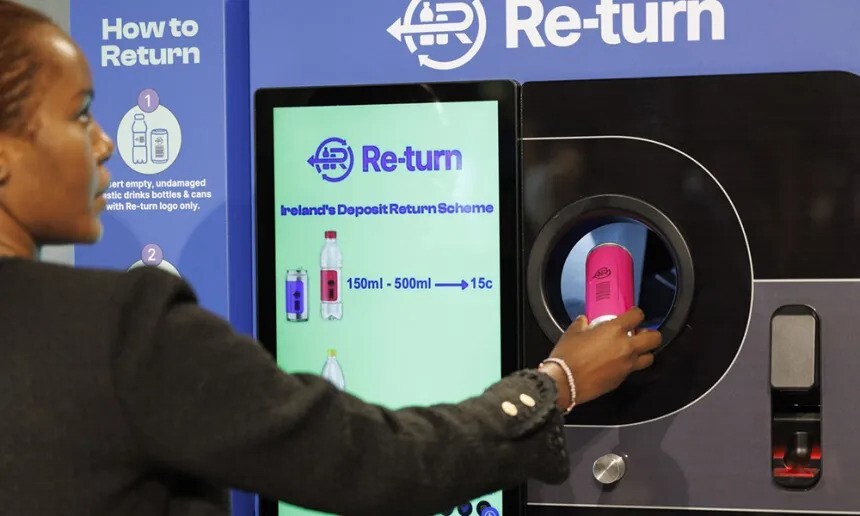

Ireland's ambitious Deposit Return Scheme (DRS) has achieved a notable environmental milestone by collecting over 1.6 billion plastic bottles and aluminium or steel cans since being implemented nationwide in February 2024. The DRS has transformed Ireland's container recycling rate from 49 per cent to an impressive 91 per cent, ranking it among the fastest transformations of any European country.

A behavioural shift powered by incentives
The DRS implemented by Ireland in February this year is a seemingly simple model with a profound impact. Under the system, consumers pay a 15 to 25 cent (USD 0.22 to USD 0.37), refundable deposit on drinks sold in a single-use container with the Re-turn logo. When they return their undamaged containers back to somewhere over 2000 return points (which include reverse vending machine containers and retailers), they will receive their deposit back. With about five million drinks consumed daily in single-use containers, the impact is immense.
As Tony Keohane, Chair of the Board of Re-turn – a team dedicated to making a positive impact on the environment and society at large through innovation, sustainability, and excellence – observed, “The Board is very encouraged by the strong performance and early impact of the scheme. Re-turn has delivered a Deposit Return Scheme that is already achieving measurable environmental results and social impact.”
Also read: The economic impact of aluminium recycling
Early results far exceed expectations
The outcomes have been rapid and astounding. Re-turn states that across the country, we are recycling around 798 million more containers annually compared to the pre-DRS baseline data. Aside from recycling statistics, with the Coastwatch Annual Marine Litter Survey, we recorded the lowest levels of bottle and can litter on Irish shores in 25 years, and IBAL (Irish Business Against Litter) stated that DRS had contributed to a 50 per cent reduction of litter in general, related to cans and bottles.
Ciaran Foley, CEO of Re-turn, noted, “These latest recycling figures are far beyond what we had projected. The degree to which the scheme has been embraced is a credit to the people of Ireland.”
He added that schools, clubs, and charities have tapped into the scheme for fundraising, highlighting its growing social value alongside its environmental gains.
Government support and future ambitions
This success mirrors similar programmes across 15 EU countries, where average collection rates hover around 92 per cent, noted Minister Ossian Smyth, who affirmed, “By giving these containers a financial value, it incentivises consumers to return them. I think people in Ireland will really get behind this scheme and make it a great success.”
Minister for Climate, Energy and the Environment, Darragh O’Brien, also emphasized the historic role of the DRS, “The Deposit Return Scheme has already established itself as a landmark initiative. It demonstrates that when change is right, Irish people will embrace it.”
While 76 per cent of eligible containers are returned via DRS, Re-turn aims to capture the other 24 per cent through improved awareness and infrastructure. Through increased return point expansion and public education, Re-turn can take critical next steps.
Also read: Aluminium recycling: The backbone of a circular, low-carbon economy
Responses








